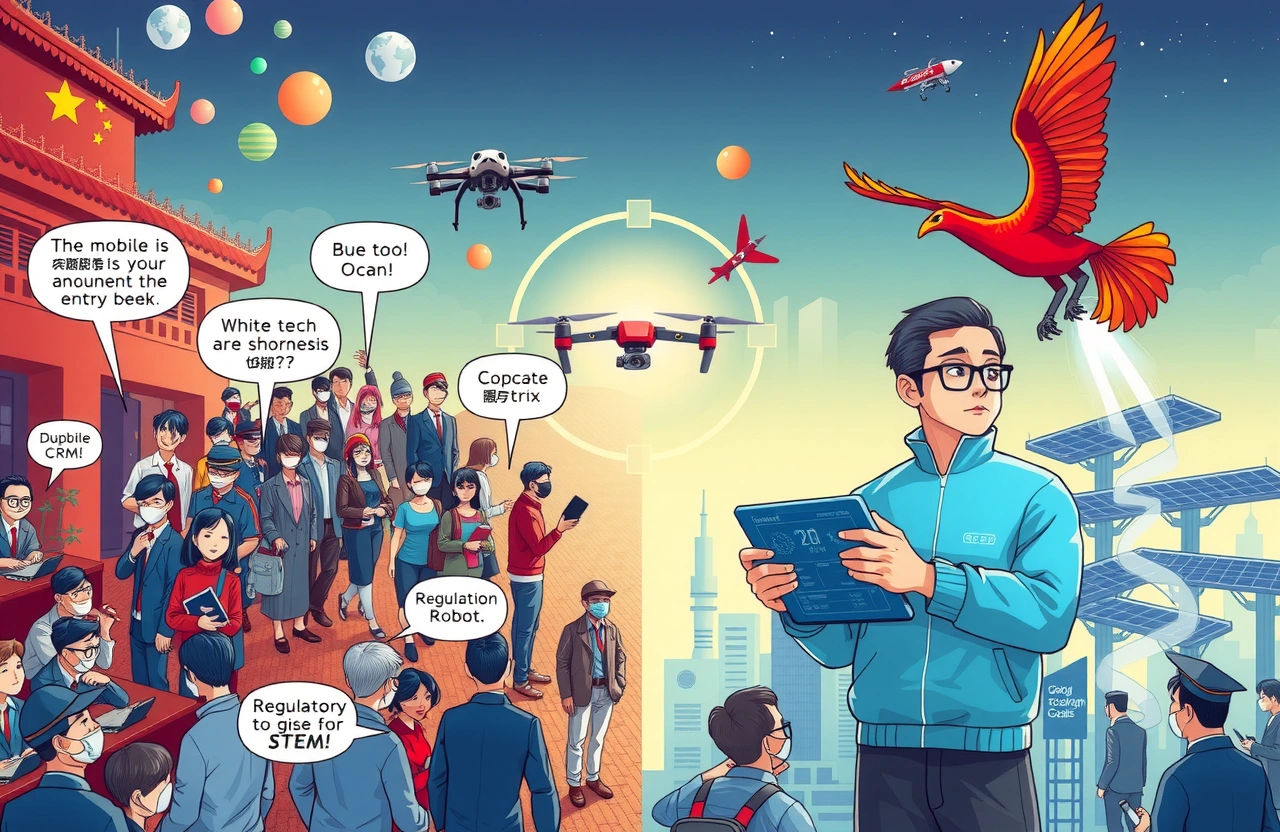– Chen Hang challenges startups to abandon copycat models and cultivate unique competitive advantages
– Analysis reveals untapped sectors and regions where breakthrough innovation is flourishing
– Practical framework helps entrepreneurs identify white-space opportunities in China’s evolving economy
– Examination of risks in innovative ventures balanced with long-term market sustainability strategies
At June’s 2025 China Enterprise Globalization Summit in Shenzhen, Group Technology co-founder Chen Hang (陈航) delivered a paradigm-shifting message to assembled entrepreneurs. Amidst global supply chain realignments and technological fragmentation, Chen declared: “The era of Chinese startups copying existing business models is over.” His keynote address framed innovation avoidance not just as competitive strategy, but as national economic imperative.
With China’s venture capital landscape evolving rapidly, Chen’s insights arrive at an inflection point. “Observing countless startups declare ‘we can do what competitors do,’ I see meaningless internal competition,” Chen asserted. This phenomenon—once celebrated as rapid iteration—now threatens startup survival rates exceeding 90% according to Tsinghua University’s 2024 Startup Autopsy Report. Instead, Chen challenges founders to discover unique problems worth solving.
The Perils of Me-Too Entrepreneurship in China’s Tech Landscape
China’s innovation ecosystem stands at a crossroads. Where imitation once provided safe passage for first-generation tech companies, fundamental shifts in capital allocation and consumer behavior now penalize derivative business models.
Understanding the Red Ocean Trap
When mobile payments exploded in 2018, over 137 licensed payment processors flooded China’s market. By 2024, just three controlled 92% of transactions according to the People’s Bank of China (PBOC). This winner-takes-all concentration exemplifies what Chen termed “the cost of crowdedness”—the diminishing returns when startups compete for identical customer segments with undifferentiated value propositions.
Studies from Shenzhen Stock Exchange-backed incubators reveal alarming patterns:
– Cloned solutions take 37% longer to achieve profitability
– Intellectual property disputes occur 8.3x more frequently
– Talent acquisition costs increase by 56% compared to innovative ventures
Chen Hang’s Critique of Commoditized Competition
“Startups mistakenly worship execution speed while neglecting blue ocean identification,” Chen observed. He recounted Group Technology’s own pivot from CRM solutions—a space dominated by Kingdee International Software Group (金蝶国际软件集团有限公司)—to industrial metaverse applications in 2021. This strategic shift unlocked partnerships with BYD and Foxconn Industrial Internet worth approximately RMB 630 million.
Mapping China’s Opportunity Frontier: Where Innovative Entrepreneurship Thrives
Contrary to perceptions of market saturation, Chen identified thriving innovation corridors far removed from Tier-1 city battlegrounds:
Emerging Sector Opportunities
– Intelligent Agriculture: Precision farming solutions integrating optical sensors and AI diagnostics
– Silver Economy: Age-tech platforms addressing 14.3% GDP healthcare expenditure by elderly citizens
– Green Manufacturing: Industrial decarbonization systems supporting 2030 carbon neutrality goals
Regional Innovation Hotspots
Beyond Shanghai-Shenzhen corridors:
– Chengdu-Chongqing Economic Circle incubation grants increased 40% YoY
– Xi’an’s Aerospace Supply Chain Innovation Park attracted USD 1.2bn VC commitment
– Hainan’s green tech initiatives yield fiscal incentives exceeding Beijing benchmarks
Building Sustainable Competitive Advantage: Chen Hang’s Strategic Framework
Chen advocates systematic differentiation across four pillars:
The Innovation Identification Matrix
Smart Risk Management ProtocolsCatalysts for China’s Innovation RenaissanceStructural advantages uniquely position Chinese startups for breakthrough innovation:
Demographic Tailwinds
China’s 19.4 million STEM graduates by 2030 (World Bank projection) provide unparalleled R&D talent density unavailable elsewhere.
Digital Infrastructure Primacy
With:
– 1.22 billion mobile payment users (PBOC)
– World’s largest 5G deployment
– Leading-edge EV charging network
The country provides plug-and-play commercialization advantages.
Sequenced Market Entry Pathway
Chen highlighted Group Technology’s expansion rhythm:
– Foundation: Deep domain expertise cultivation
– Scaling: Ecosystem partnerships forged during Shenzhen Entrepreneur Matching Forums
– Globalization: Ecosystem rather than direct market entry
Breaking Through Barriers: Overcoming Innovation Constraints
Transformative entrepreneurship faces distinctive institutional challenges:
Regulatory Navigation Strategies
Successful founders address compliance through:
– Sandbox Testing
– Provincial-Level Pilot Programs
– Triangular Dialogue Platforms (Corporate-Government-Academic)
China’s State Council Q3 2024 innovation index shows regions adopting these approaches increased local startup formation by 29%.
From Concept to Market Leadership: Implementation Roadmap
Chen prescribed actionable methodologies:
Opportunity Discovery Protocol
Intellectual Amplification TacticsThe Sustainable Innovation ImperativeChen concluded: “Originality isn’t philosophical abstraction—it’s survival arithmetic.” Entrepreneurs embracing specialized differentiation capture enduring competitive advantages.
As China transitions toward its innovation-driven development phase, Chen anticipates “gradual emergence of truly unique venture ecosystems.” Within 24 months, projections indicate proprietary R&D will comprise 37% of venture valuations versus 11% currently—signaling irreversible momentum toward authentic invention.
For forward-thinking founders, your blueprint begins with avoiding established battlefields. Identify venues where maximum leverage meets minimal resistance, and build scalable solutions for problems competitors overlook. As Chen Hang revolutionized industrial visualization, your distinctive venture awaits discovery.




